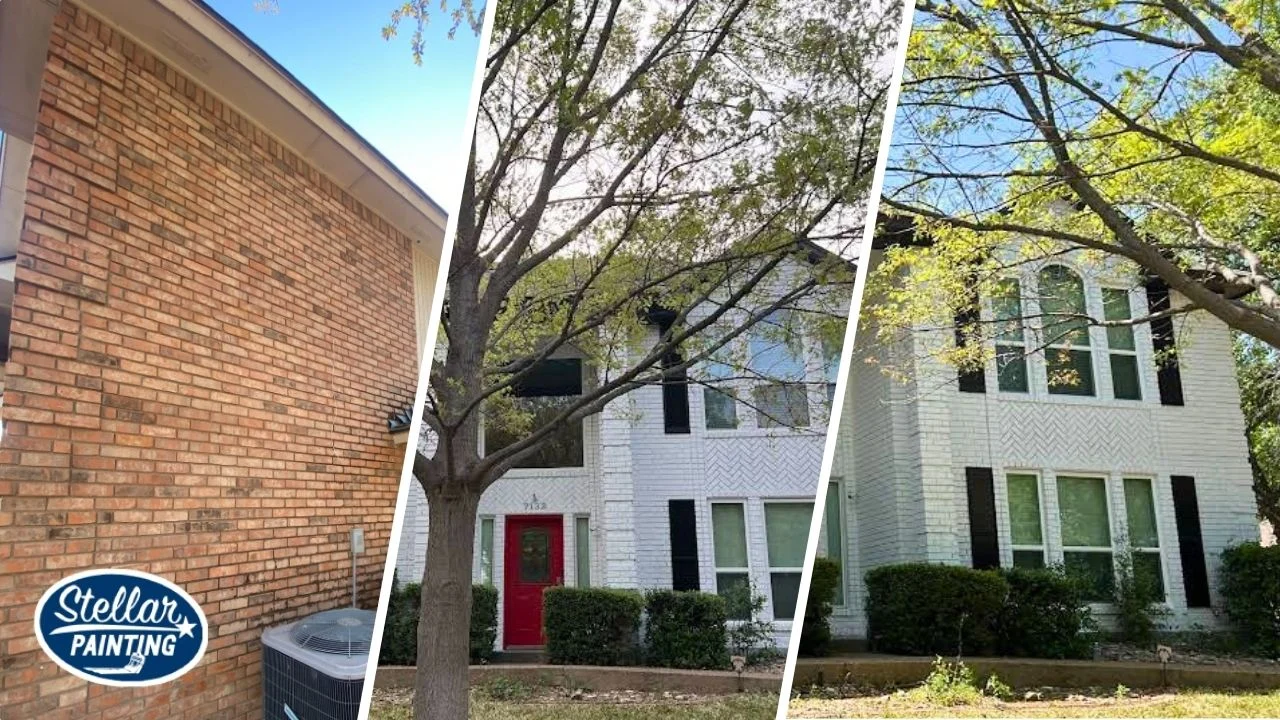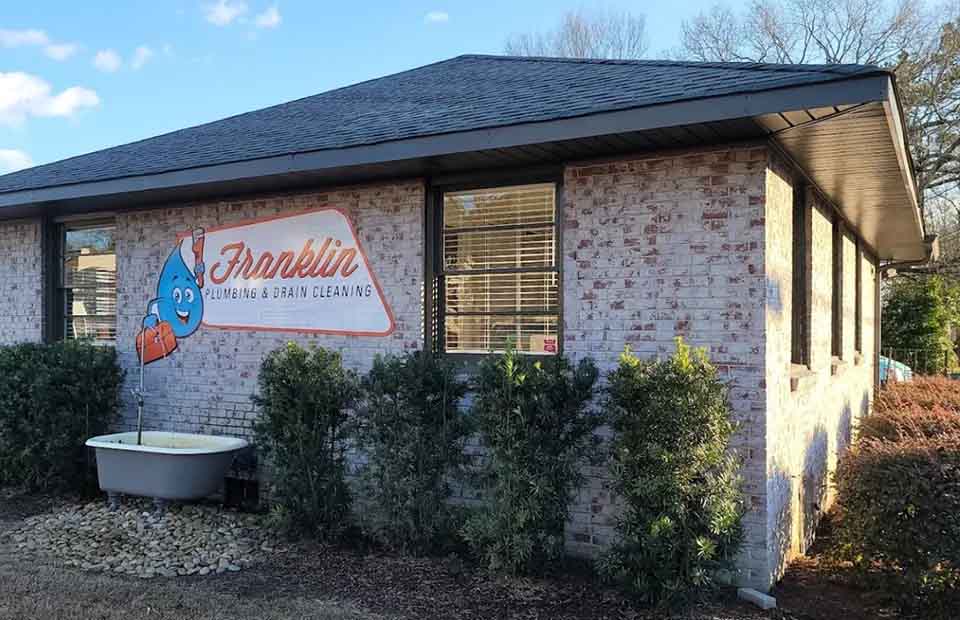Typical costs range from $2 to $8 per square foot.
All products and services featured are independently selected by our editors. However, when you buy something through our retail links, we may earn an affiliate commission.
Hardwood floor refinishing costs typically range from $800 to $1,600, but many homeowners will pay around $1,200 on average for a 200-square-foot space. However, your overall cost will vary substantially depending on several factors, including floor size, wood type, and the condition of the existing flooring. Hardwood floors add a timeless look and character to your home but lose their radiant shine due to accumulated scratches, stains, and general wear and tear. Refinishing hardwood floors can breathe new life into your space, restoring the floors’ luster and providing a fresh, revitalized aesthetic. In this guide, we’ll explain the cost factors that impact hardwood floor refinishing projects and offer recommendations for finding the right professional for your project.
Note: Unless otherwise noted, cost figures in this article are based on 2024 reports from Fixr and HomeAdvisor.
Major Cost Factors of Refinishing Hardwood Floors
The typical cost for hardwood floor refinishing ranges from $800 to $1,600 for a 200-square-foot area, with a national average of $1,200. Your overall cost depends on the current condition of the flooring. To completely refinish a hardwood floor, including sanding down the top layer to bare wood and applying several coats of new finish like polyurethane, expect to pay flooring professionals $3 to $8 per square foot.
If your floor appears slightly worn but otherwise in good condition, you could get by on recoating the flooring without sanding. This is typically a low cost of $1 to $2 per square foot.
Factor 1: Cost by Hardwood Floor Material
The most significant cost factor of refinishing hardwood flooring is the type of wood. Below, we break down the average cost per square foot to refinish different hardwood flooring options and their benefits and drawbacks.
| Floor Material | Cost Range | Average Cost |
|---|---|---|
| Cherry | $3 to $5 per sq ft | $4 per sq ft |
| Oak | $3 to $5 per sq ft | $4 per sq ft |
| Bamboo | $3 to $6 per sq ft | $4.50 per sq ft |
| Pine | $4 to $7 per sq ft | $5.50 per sq ft |
| Maple | $5 to $8 per sq ft | $6.50 per sq ft |
| Mahogany | $6 to $8 per sq ft | $7 per sq ft |
- Cherry ($3 to $5): Cherry wood flooring embodies a timeless charm, yet its merits come hand in hand with certain considerations. Its deep, rich reddish-brown hues and distinctive fine grain patterns give interiors a sense of luxury and warmth. It offers moderate hardness and low stiffness, making it easy to work with when compared to other rood varieties. Since it’s grown in the United States, its costs are lower than those of more exotic hardwood varieties. However, the susceptibility to darkening from direct sunlight is a notable downside. You’ll need protective measures to maintain its original appearance.
- Oak ($3 to $5): Oak flooring’s inherent strength and durability are major advantages that ensure its longevity in various settings. It also features captivating grain patterns, from rustic and textured to more subtle and uniform In addition, it offers diverse hues, ranging from light beige to dark reddish-brown. It’s one of North America’s most commonly used and widely available hardwood types, which helps keep its costs very reasonable. Oak’s resistance to wear and tear makes it well-suited for high-traffic areas. However, oak is still susceptible to moisture damage and requires routine care to prevent warping.
- Bamboo ($3 to $6): Bamboo flooring’s hardness rivals traditional hardwood options, such as oak, and provides durability suitable for high-traffic areas. It’s an eco-friendly option that offers more diverse design options than hardwoods, including vertical and horizontal grain patterns. A downside includes susceptibility to scratches and dents, especially in busy households. Some bamboo flooring may also involve adhesives with volatile organic compounds (VOCs).
- Pine ($4 to $7): This softwood offers a rustic appeal with its unique knots and grain designs. Since pine grows faster than other hardwoods in the U.S., it’s more cost-effective due to the availability of more supplies. It’s also easier to snag and refinish, making its long-term maintenance more affordable. Due to its lower durability, pine wears down quickly and often shows scratches on its surface.
- Maple ($5 to $8): Maple flooring’s durability and hardness make it a robust choice for spaces that demand resilience, while its light, neutral tones and menial grain pattern offer a more sleek, modern appeal. Its ability to resist wear and tear, even in high-traffic areas, speaks to its practicality. Maple’s sturdiness sometimes translates into a harder surface to walk over, and its light color can limit your options. It’s primarily sourced in North America, making it a readily available and moderately priced hardwood flooring option.
- Mahogany ($6 to $8): Known for its deeper reddish-brown color and distinctive striped grain pattern, mahogany has become a highly desirable hardwood flooring option. It offers better durability and water resistance than oak and requires little maintenance. Since it’s sourced from outside the U.S., it’s priced much higher than domestic species.
Factor 2: Cost by Area Size
The square footage of your hardwood floors significantly impacts the total cost of your refinishing project. Many contractors will decrease the price per square foot the larger the project scope because the job requires less labor to set up and take down equipment.
| Floor Size | Cost Range | Average Cost |
|---|---|---|
| 40 sq ft | $120–$280 | $150 |
| 100 sq ft | $300–$800 | $550 |
| 250 sq ft | $750–$2,000 | $1,375 |
| 400 sq ft | $1,200–$3,200 | $2,200 |
| 1,000 sq ft | $3,000–$8,000 | $5,500 |
| 2,000 sq ft | $6,000–$16,000 | $11,000 |
| 3,000 sq ft | $9,000–$24,000 | $16,500 |
Large-scale refinishing projects offer economies of scale, lowering overall costs per square foot and making them more cost-effective for homeowners. Flooring contractors can leverage the increased volume of work to negotiate better rates for materials and labor. With the ability to spread fixed costs across a larger area and the potential for bulk discounts on materials, contractors can also reduce their variable costs.
Factor 3: Labor Cost
The labor cost varies according to the project’s scope and the contractor’s capabilities, but up to 80% of the final project cost can go to labor. Labor adds about $2 to $5 per square foot but can increase due to more significant work. Additional services will increase project costs, including furniture removal, flooring repairs, and extended sanding. We recommend checking with your contractor for details on all services included in your refinishing project.
Factor 4: Cost by Type of Refinishing
Homeowners have several options for their chosen refinishing method. While some methods help preserve the wood’s natural look, others offer a refreshed style to your room. We’ll detail each method below:
| Type of Refinishing | Cost Range | Average Cost |
|---|---|---|
| Recoating | $1 to $2 per sq ft | $1.50 per sq ft |
| Staining | $1 to $3 per sq ft | $2 per sq ft |
| Sanding | $3 to $5.50 per sq ft | $4.25 per sq ft |
| Topcoats | $20 to $55 per gallon | $37.50 per gallon |
| Waxing | $35 to $55 per gallon | $45 per gallon |
| Penetrating Oil | $40 to $100 per gallon | $70 per gallon |
| Hard Wax Oil | $70 to $550 per gallon | $110 per gallon |
- Recoating: If your hardwood floor has minor wear and tear, recoating can restore its appearance without sanding. Recoating your floor is a more cost-effective alternative to refinishing, typically priced between $1 and $2 per square foot. This process reduces the time and cost of refinishing while still restoring your floor’s appearance.
- Staining: If you want to match the color of your wood flooring with the interior of your house, you can choose to apply stains. This would cost you an additional $1 to $3 per square foot. However, it’s an optional step, and you can skip it if you prefer to keep the natural color of the wood.
- Sanding: Sanding helps remove the top coat of the existing finishing and refine any surface scratches and imperfections. Traditional sanding costs $3 to $5.50 per square foot but can be messy. Some contractors offer dustless refinishing using commercial vacuums. This method is also helpful for anyone with severe allergies or breathing issues. This option increases costs to $6 to $8 per square foot.
- Topcoats: Polyurethane topcoats help enhance the final look of flooring by offering added durability or shine. Oil-based polyurethane topcoats are the most common options. They provide added durability and a more traditional dark-hued shiny coating. They cost around $20 to $50 per gallon. Water-based polyurethane topcoats are colorless, allowing the wood’s natural color to remain while still offering a high-gloss finish. Since they take less time to dry than other finishes, you’ll pay a higher cost of $30 to $55 per gallon.
- Waxing: Liquid wax, or paste wax, offers a more natural look with a softer matte finish. Wax is buffed into the hardwood flooring, left to harden, and then buffed a second time. It can be reapplied as needed to high-traffic areas and is an easier way to maintain your floor’s refinished appearance. Waxing costs around $35 to $55 per gallon.
- Penetrating oil: These oils seep into the wood surface, harden, and reinforce from the inside out. This process offers added durability to the floorboards and is less toxic than other refinishing methods. As such, it has a higher price point, at $40 to $100 per gallon.
- Hard wax oil: Reserved for use on more exotic wood types, this oil is rubbed into the surface of the wood and eventually hardens. The hardened surface offers a shiny appearance and longer durability than other less expensive methods. Since it’s a gentler process with better durability, you’ll pay $70 to $550 per gallon.
Factor 5: Cost by Flooring Condition
Your flooring must be in good condition before proceeding with a refinishing project. While refinishing can address minor imperfections like dents and superficial scratches, it can’t remedy substantial or deep damage to the surface. Additional issues should also be addressed, including loose floorboards, gaps, and individual replacement. Depending on the contractor, this process might cost an extra $2 to $25 per square foot.
Other Potential Factors Affecting Cost
Additional cost factors that a contractor may or may not include in the base price are as follows:
- Carpeting: If you need to dispose of old carpet, there may be an extra charge of $0.50 to $0.75 per square foot.
- Cleaning: Contractors usually offer cleaning and buffing services during the sanding and refinishing process. However, if you require additional cleaning before or after the sanding and refinishing process, you may need to pay extra charges. The cost of cleaning services may vary depending on the extent of cleaning required and can range between $0.60 and $1 per square foot.
- Subfloor: If your floor has been damaged by water or is uneven, contractors may need to repair the subfloor underneath, which can cost between $3 and $5.50 per square foot.
- Furniture moving: Some flooring contractors might offer to move furniture as part of their service, while others may not. If they do, there will be additional fees for this service, which will vary depending on how much furniture needs to be relocated during the project. These fees can range from $20 to $50 per room.
- Stairs: Refinishing hardwood on stairs requires a more labor-intensive process, which will increase project costs. You can expect to pay an extra $25 to $45 per step for this process.
- Geographic location: The cost of refinishing can fluctuate depending on your location. In metropolitan areas with a higher cost of living, labor expenses are often higher, which inflates the overall refinishing costs. In regions with a lower cost of living, contractors may charge relatively less for labor, making refinishing more economical. Cost may also vary due to material availability and local market demand for refinishing services.
Signs That You Need to Refinish Your Hardwood Floors
Here are some signs that indicate it’s time to undergo a refinishing job:
- Discoloration: Discoloration can be caused by several issues, including water stains, sun exposure, or eventual wear and tear. While small portions of discolored flooring can be covered, larger areas could affect your home’s aesthetics. If the damage is too large to cover, consider having your flooring refinished.
- Exposed nails: Exposed nails can damage your surrounding furniture and pose a safety issue for you and your family. While a few exposed nails could warrant simple repairs, many exposed nails warrant immediate refinishing services.
- Scratches and marks: Over time, your flooring will accumulate light surfaces that are scratched and damaged. Light scratching is normal and can be concealed with an area rug or relocated furniture. However, deep scratches, gouges, and marks on the hardwood floor can affect your home’s appeal and require more immediate care. If you have significant damage, it’s a sign it’s time to refinish your flooring.
- Texture changes: If the texture of the hardwood floor has changed, such as becoming rough or uneven, it may be time to refinish the floor. Uneven surfaces can cause your feet to catch, leading to unexpected falls.
- Water damage: Water damage causes hardwood floors to warp and buckle. Aside from being unsightly, they could make walking safely across the flooring difficult. Call a flooring professional if you notice significant uneven or warped spots.
- Worn finish: Another obvious sign your floor needs refinishing is when the floor finish loses its character and becomes worn or damaged. This happens from normal wear and tear, spills, or accidents.
Professional vs. DIY Hardwood Floor Refinishing
Opting for professional hardwood floor refinishing ensures expertise and precision. Professionals can provide advice on the best stain colors and finishes based on the homeowner’s lifestyle and aesthetic preferences. They offer proper dust containment and cleanup methods to minimize impact on the home and reduce fire hazards.
Trained technicians are capable of addressing intricate details and maintaining the proper finish with minimal errors. Professional flooring technicians often use industrial-grade equipment, which ensures a more refined outcome that can extend the life span of your floors. Additionally, your project is protected with guarantees and warranties on workmanship and flooring products.
On the other hand, DIY floor refinishing gives you more creative control and potential cost savings. However, it demands a steep learning curve with specialized tools like a belt sander and varnish. It’s important to note that not having proper ventilation and protective gear while working with dust and chemicals can pose potential health risks.
Additionally, any mistakes made during the process can negatively impact the final look and durability of the flooring. For instance, uneven sanding, visible scratches, and incorrect staining can occur. It’s also possible to create deep gouges, sand too harshly, or cause other permanent damage that could shorten the life span of the flooring. We advise you to weigh professionals’ expertise and convenience against the hands-on involvement and financial benefits of a DIY project, especially given how costly and time-consuming mistakes with flooring become.
If you’re planning to hire a professional flooring contractor, make sure to choose a qualified company with at least five years of experience. While there’s no requirement for contractors to have a license for installing or refinishing floors, many states have a certification or licensing process in place. It’s also important to ensure that the potential companies you’re considering are properly insured and bonded. To get an idea of their reputation and quality of work, check customer feedback on third-party review sites and ask for customer testimonials and a portfolio of their previous work. Also, gather quotes from at least three contractors to find the best pricing.
Questions to Ask When Getting Quotes
To better evaluate any potential contractor, we suggest asking them the following questions:
- Are there any additional repair services that must be completed before the refinishing?
- How long will it take after the process for any refinishing products to properly dry?
- How long will the refinishing process take?
- Is furniture moving included with your services or will I need to do this myself?
- Is your work guaranteed or warranted? If so, for how long and what’s covered under these protections?
- What precautions do you take to keep sanding dust contained?
- What services aren’t typically included in your projects, such as cleanup, furniture moving, or prep work?
- What type of stain and finish would you recommend for my flooring and why?
Our Recommendation
When it comes to flooring, investing in high-quality and durable options upfront will save you money in the long run. We recommend working with a professional to ensure an excellent result and protect your flooring’s life span. Flooring companies can provide accurate cost estimates by assessing a home’s unique layout and needs, while also offering warranties or guarantees on their work. Before deciding on a home improvement company, carefully evaluate all your options with a reputable home improvement company before making a decision.
Our tool below helps you find reputable flooring companies that service your address.
Refinishing Hardwood Floors Cost FAQ
Is it more cost-effective to refinish or replace hardwood floors?
Refinishing hardwood is more cost-effective than replacing it. Even if it requires removing a few severely damaged planks, refinishing will generally always cost less than tearing out the entire floor.
When should you not refinish hardwood floors?
We recommend that if over 30% of your hardwood floor has received damage, you should replace the hardwood flooring rather than try to refinish it.
Can you stay in your house while refinishing hardwood floors?
Yes, you can stay in your house while refinishing hardwood floors. However, you may need to take some safety precautions because the refinishing process involves using chemicals, such as water or oil- or water-based polyurethane, and machinery that produces dust. Some people are more sensitive to these things than others.
How do I find a qualified professional to refinish my hardwood floors?
We recommend searching for local companies with excellent customer reviews and solid work experience to find qualified flooring professionals. Work with licensed and insured contractors specializing in floor refinishing and avoid companies not offering detailed service quotes. Get quotes from at least three professionals and compare services, pricing, and guarantees.
What factors should I consider when comparing quotes from flooring professionals?
When comparing flooring quotes, look for details on service included, material costs, labor charges, and estimated timelines. Check for cost breakdowns for services outside of the refinishing, including cleanup, repairs, subflooring prep, and disposal. In addition, check for details on guarantees and workmanship protections for the refinishing and labor.












